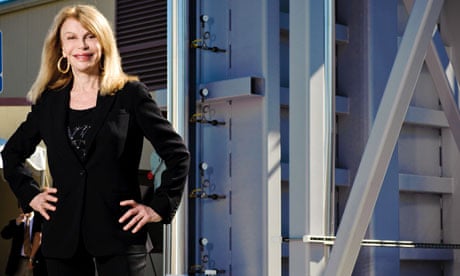There are several reasons why Graciela Chichilnisky can claim to be an innovator. She was the architect of the Kyoto Protocol's carbon market, the lead author on the 2007 Intergovernmental Panel on Climate Change that won a Nobel Prize, and reputedly even created the term "sustainable development".
Her most recent venture is the Global Thermostat (globalthermostat.com) pilot plant in Silicon Valley, California. The technology takes waste heat from a solar-generating plant and puts it to good use, thanks to a refined chemical process that (apparently) sucks carbon out of the air, before sequestering it underground. The fact that, according to Chichilnisky, they are able to reallocate this low-cost energy is key: other carbon-capture techniques have come unstuck because they consume too much energy to sequester the carbon, making them uneconomic. Global Thermostat estimated that its process can remove 5lb of CO2 per kWh of electricity, as opposed to coal-fired power stations which currently (in the US) emit 2lb of CO2 for every kWh of electricity created.
Chichilnisky's claims her innovation reverses the "current paradigm" in which the more energy is created the more emissions are created. With her pilot plant she insists that the more energy is produced, the more carbon emissions are reduced. This is a bridge too far for many environmentalists who believe the only way to avert disaster is to turn out the lights – yesterday. Global Thermostat is the embodiment of the optimistic belief in a "technical fix" to global warming, but Chichilnisky is determined to prove it is also economically viable. "The first principle of creating change is you have to make the change profitable," she says.
Email Lucy at lucy.siegle@observer.co.uk or visit theguardian.com/profile/lucysiegle for all her articles in one place
